If you’ve run out of time to prepare before a trip, you might find yourself at the airport with a shopping list. But is buying travel items in the terminal a smart move? With a captive market, retailers may choose to hike prices knowing that it won’t harm sales. Take a look at 10 things you should never buy at an airport.
Foreign Currency
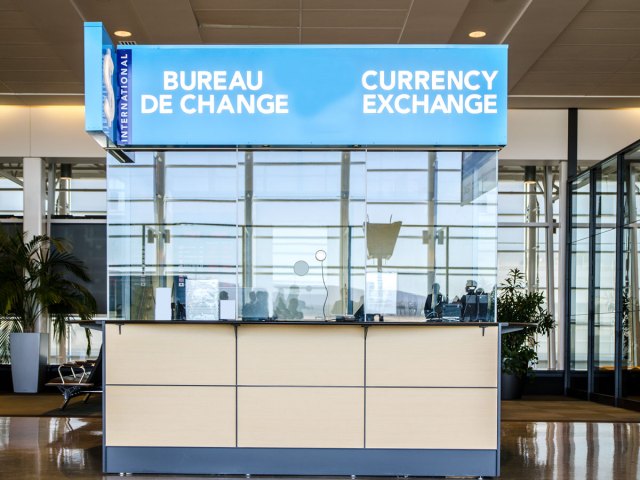
High commission fees and unfavorable exchange rates mean that buying foreign currency at the airport, though convenient, is rarely a wise financial move. Alternatively, plan to withdraw the notes you need from an ATM on arrival at your destination, where the exchange fees will almost always be less than at airport kiosks.
In many parts of the world, you won’t even need cash. Throughout much of Europe, for example, acceptance of contactless payments is widespread. That said, you should bring a small amount of cash for those occasions when it’s needed. If you’re traveling somewhere and expect to use cash, it’s often also a good idea to order it through your bank or credit union in advance.
Bottled Water
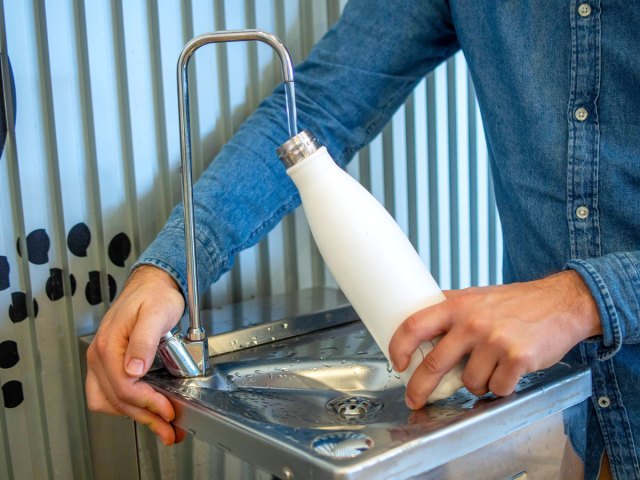
The dry, cool air that is recirculated through the plane cabin has a dehydrating effect on your skin, so it’s always a good idea to drink plenty of water during your flight. Unfortunately, long-standing restrictions mean that carrying liquids greater than 3.4 ounces through airport security is not permitted.
But bottled water airside is often overpriced compared to what you’d find in a grocery store. Instead, bring an empty refillable bottle and fill it free of charge at a drinking water fountain before you board, which has the added bonus of reducing your consumption of single-use plastics. (Don’t have a reusable bottle? You can always try this trick, though it requires additional planning.)
Large Power Banks
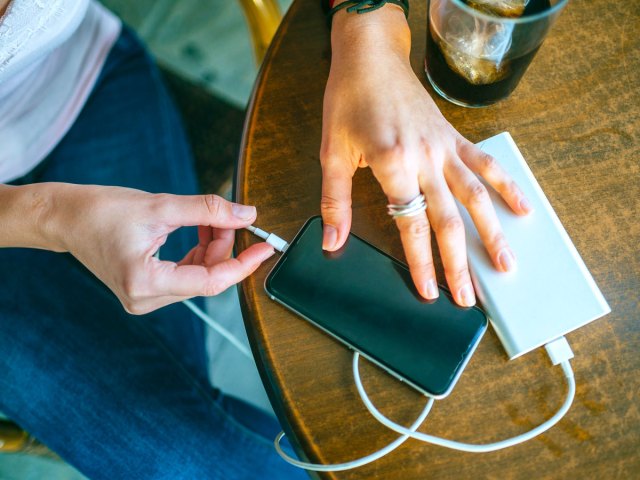
Travelers are increasingly dependent on their mobile devices when they’re away from home. The rise of smartphones means that you can browse the internet, post on social media, check emails, and find your way around with considerable ease even when overseas. However, this level of use drains batteries, so you might be tempted to purchase a portable charger at the airport.
Proceed with caution: Many airlines now ban the use of power banks on board for safety reasons because of the risks of fire associated with the lithium batteries in them. And while the TSA says that portable chargers containing lithium batteries are still permitted in a carry-on (they’re banned in checked bags), there are size limits. Lithium ion batteries must have a rating of 100 watt hours (Wh) per battery or less.
Books

If you have a long flight ahead of you, stopping by a bookstore at the airport might seem like a logical move. But consider whether you’ll want to tote around a bulky, heavy book in your luggage after you’ve read it. A book could also tip the scales and make your luggage overweight. Instead, download books on an e-reader such as a Kindle in advance or subscribe to your favorite magazines and read digital editions on your device.
If you still wish to buy a physical book at the airport, one option is to look for a book swap at your destination so that someone else can also benefit from reading it. You can even sign up for BookCrossing and follow your giveaway’s journey once you release it into the wild.
Souvenirs

It’s no secret that many tourists love to buy souvenirs to take home from a trip. In fact, revenue from gift, novelty, and souvenir stores in the U.S. topped $21 billion in 2022. While souvenir shops at the airport might be handy for killing time, you’d be smart to rein in any impulse purchases.
Prices tend to be higher than the equivalent at local stores and markets. Plus, fragile pieces can be easily damaged in overhead bins, and anything bulky will take up valuable space in your carry-on. Instead, browse the displays of reputable local stores at your destination to seek out authentic keepsakes that have been sustainably and ethically produced. With time to compare and consider, you’re far less likely to come home with something you’ll regret.
Wi-Fi

If the airport doesn’t offer free Wi-Fi, or if it’s frustratingly slow, it might be tempting to pay for connectivity. However, even official airport networks can be vulnerable to hackers utilizing rogue access points. Instead, do your homework ahead of your trip: Research data roaming packages, e-SIMs, and safer wireless network providers such as Boingo to get yourself connected with minimal risk. Connecting via a VPN also helps ensure the data is encrypted.
Duty-Free Liquor
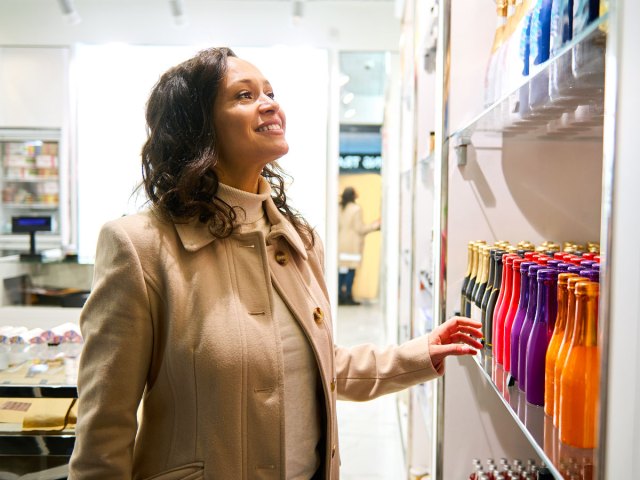
While the price of duty-free items can sometimes represent substantial savings on prices in regular stores, it always pays to do your research. Buying liquor, for example, isn’t always cheaper at the airport, even with the savings on taxes.
Check prices before you travel so you’re armed with the information you need to make comparisons. If there’s only a small discount, you may choose not to carry the heavy glass bottles on board, particularly if you are traveling with other bags or plan to use public transportation rather than a private car or cab once you arrive at your destination.
Neck Pillows
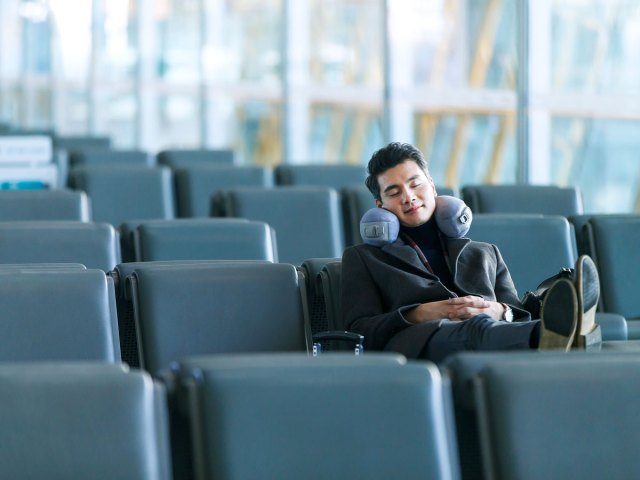
If you’ve noticed a stand prominently displaying neck pillows at the entrance to a store in the airport terminal, you’ll understand just how effective the power of suggestion can be. Whether the pillow itself will help keep you more comfortable on a flight is a matter of opinion, but if you’re keen to try one, always compare prices before you fly. The airport version is typically, though not always, more expensive.
Medicines

It’s never a good idea to rely on airport pharmacies to have the medication you require in stock, but if you do end up needing to buy medicine at an airport abroad, make sure you know what to ask for. Make a note of any generic drugs you might need and see if you can figure out alternative brand names by which they’re known overseas to ensure any purchase, at the airport or otherwise, is the right one.
Electronics
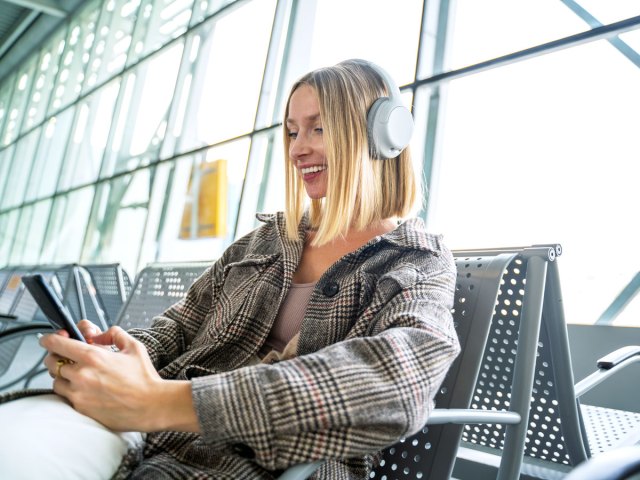
Buying electronics at the airport can be a minefield. While the price of such goods, depending on where you’re traveling, may be considerably less than you’d pay at home, this type of purchase is also risky. Should the item prove to be faulty, it will be difficult to get a refund or exchange, and warranties may not be valid back in the United States. Additionally, there may be compatibility problems thanks to differing voltage, plug types, or even subtle differences with, for instance, the layout of laptop keyboards. At the end of the day, consider whether paying a little more back home will be worth it for peace of mind.
More from our network
Daily Passport is part of Inbox Studio, an email-first media company. *Indicates a third-party property.
















